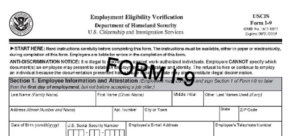RETALIATION PRESUMED TO EXIST
One of the many laws that Governor Newsom signed was Senate Bill 497 (SB 497), known as the “Equal Pay and Anti-Retaliation Protection Act.” This new law amends Labor Code Sections 98.6, 1102.5, and 1197.5.
At Will Employment
California Labor Code Section 2922 has long established that employment is presumed to be “at will” which means that either the employee or the employer can end the employment relationship at any time for any reason or no reason, and with or without advance notice. However, although the “at will” doctrine exists, terminations can be challenged by an allegation that the termination or other “adverse employment” action (such as a threat of termination, demotion, suspension, or other negative change to the employment relationship) was premised upon “protected activity” and therefore retaliatory.
Rebuttable Presumption Of Retaliation
Now, under SB 497 there will be a rebuttable presumption of retaliation if an employer takes an “adverse employment action” against an employee within 90 days of the employee engaging in “protected activities.”
Employers may rebut this presumption, but the burden is on the employer that it had a legitimate reason for the adverse employment action against the employee.
What are Protected Activities
The DLSE defines “protected activity” as engaging in or exercising of a right that is protected by law. Such as:
- Filing a claim with the Labor Commissioner
- Participating in Workplace Investigations
- Whistleblowing
- Participating in administrative actions including testifying before the Employment Development Department (EDD)
- Disclosing an employee’s wages or other working conditions
- Inquiring about other employee’s wages
- Engaging in Labor organization activities
- Using marijuana off duty/off premises and other legal off-duty conduct
Penalties For Violations
SB 497 provides for increased penalties for employers found to have retaliated against an employee. Instead of a general civil penalty, employers may now be liable for up to $10,000 per employee for each violation. This penalty will be awarded to the retaliated employee.
What Can Employers Do Now
Employers may want to reconsider and reevaluate their procedures for addressing workplace concerns and disciplining employees. As always, but now more than ever, employers should ensure there is sufficient documentation of an employee’s performance or behavioral issues before issuing disciplinary action.
Employees should review and compare the performance and disciplinary action taken with other employees to ensure consistency that such actions are based on legitimate business reasons.
Employers should also ensure that all managers and supervisors are addressing issues consistently.
A FEW REMINDERS FOR THE NEW YEAR
California Increases Minimum Wage
The State of California’s minimum wage is set to increase to $16.00 per hour (an increase of $0.50 from the current minimum wage of $15.50), on January 1, 2024. The state minimum wage will apply to all employers, regardless of their size.
The increase to the State minimum wage will also affect the minimum salary requirements for exempt employees: $66,560 per year (currently $64,480 per year).
As a reminder, some local jurisdictions may have higher minimum wages. For example, the minimum wage in the City of Los Angeles recently increased to $16.78 per hour.
California employers should check with their local counties and cities to determine the appropriate minimum wage for their employees.
Employers should review their exempt employee’s salary to ensure compliance with the increased minimum salary threshold.
Click here for a chart that details some of the local minimum wage rates in the State of California.
MANDATORY USE OF NEW I-9 FORM
In July, the USCIS announced a new Form I-9, which became available for use on August 1, 2023, As of November 1, 2023 it will be mandatory for all employers to use the new form. The new form can be found here (English); (Spanish).
A summary of changes to the Form I‑9 and instructions is available online and can be found here.
Remote Verification Option for Form I-9
The USCIS has adopted procedures which permits employers to remotely examine employees’ Form I-9 documents provided the employer is enrolled in E-verify. Those procedures can be found here.
The USCIS has detailed procedures on how to enroll in E-verify which can be found here.
What Should Employers Do Now
- Discontinue use of any prior versions of the I-9 Form.
- Immediately begin to use the new I-9 Form
- Review the changes to the Form and the instructions
- Train any personnel responsible for on-boarding new employees that they know and understand the I-9 process.
This Newsletter is intended as a brief summary of employment law. While every effort has been made to ensure the accuracy of the information contained herein, it is not intended to serve as “legal advice,” or to establish an attorney-client relationship. If additional information is needed on any of the topics contained herein, please contact our office. All rights reserved. ©2023.
